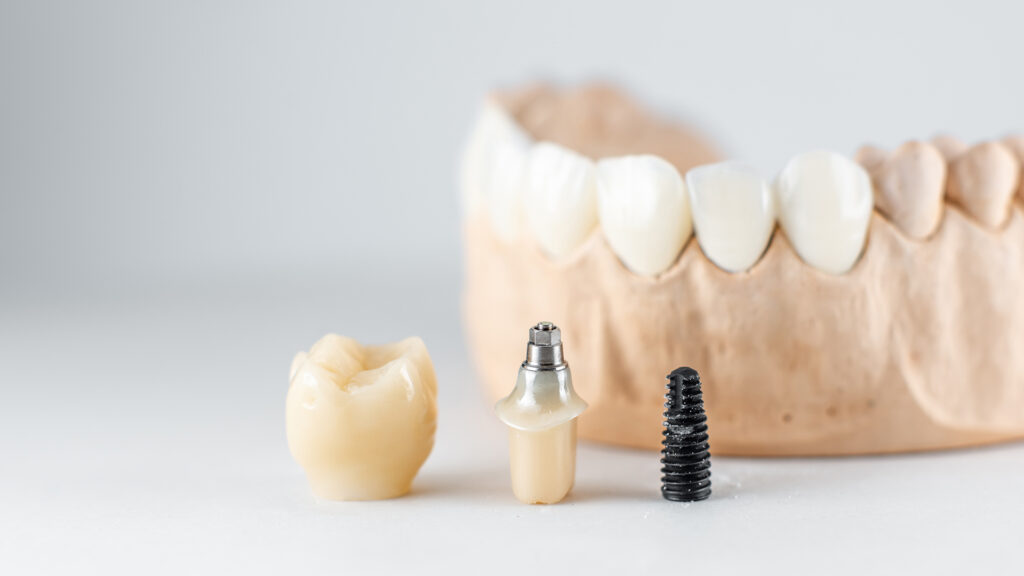
Causes of tooth loss
1-Dental caries
2. Gingivitis
3. Teeth grinding
4. Other causes
Consequences of tooth loss
1. Chewing problems and tooth erosion
2. Tooth movement, tartar, caries and gingivitis
3. Bone loss
4. Digestive problems
5. Speech difficulties
6. Discomfort when smiling and problems with self-esteem
Dental Implants: The Perfect Solution for Tooth Loss
Conclusion
Sources
Tooth Loss
For children and young people, tooth loss may not be important or dangerous to the shape or appearance we desire because there is no reason to fear. All baby teeth will fall out in one way or another and then permanent teeth will grow. But the danger arises if a person loses a permanent tooth for any reason because it will not be replaced by a new tooth and the solution in this case is in the hands of the dentist.
When losing one or more permanent teeth, you should visit the dentist to discuss the available solutions to maintain a beautiful and natural mouth and smile that does not attract the attention and questions of people at work or in society and causes a lot of embarrassment.
When visiting the dentist, he will present dental implants as one of the best solutions to the problem of tooth loss.
Continue reading to learn more details
Causes of tooth loss
1-Dental caries
Dental caries is a disease that affects the teeth and affects men and women and different age groups equally. The removal of minerals from tooth enamel by bacteria (Streptococcus mutans) weakens them and caries are associated with root infections, fractures, and abscesses that lead to tooth extraction.
2. Gingivitis
Gingival disease begins to spread more after the age of forty. It is an infectious disease, caused by the presence of a bacterial layer in the mouth, and causes inflammation of the gums, bleeding gums, bad breath, gum recession, and tooth movement.
3. Teeth grinding
Teeth grinding is another cause of tooth loss. Unconsciously, the patient gets used to pressing on the teeth at night or during the day to relieve stress and fatigue. This involuntary habit that continues over time causes cracks and fractures in the teeth. Although controlling teeth grinding is not easy, there are techniques to counteract the force exerted on the teeth, gums, chewing muscles, and temporomandibular joint.
To avoid tooth loss due to bruxism, we recommend using a relaxation splint that distributes the chewing force and relaxes the muscles. Furthermore, in cases of severe bruxism, in addition to using the splint, we also recommend a series of physiotherapy exercises to reduce muscle tension and improve jaw mobility.
4. Other causes
Less common causes are trauma or accidents that lead to tooth extraction and loss. If you practice risky sports (hockey, rugby, etc.) we recommend the use of a mouth guard to avoid impacts that could lead to the loss of an incisor.
Consequences of tooth loss
1. Chewing problems and tooth erosion
When we chew, as a hollow area remains due to tooth loss, food affects the gums, which can damage them and cause discomfort. This in turn makes us tend to chew the other side more, causing an increased load on the teeth involved which can lead to more pain and erosion.
2. Tooth movement, tartar, caries and gingivitis
The absence of teeth means that the adjacent teeth tend to move to occupy the space left empty, and therefore irregular connections may remain between the teeth which leads to food retention and makes dental hygiene difficult, increasing the risk of cavities. tartar, fractures, bleeding, gingivitis, and periodontitis.
This is usually particularly dangerous in the case of the opposing tooth because by not connecting to the other side it can tend to erupt excessively, leaving a large proportion of the root outside the bone, with all the risks that this entails.
3. Bone loss
Another consequence of losing a tooth is the risk of the bone that supported it deteriorating over time due to disuse, which can lead to more complex dental procedures when the patient decides to undergo treatment.
4. Digestive problems
Losing teeth results in poorer chewing, which can lead to digestive problems.
5. Speech difficulties
The absence of certain teeth can lead to speech difficulties.
6. Discomfort when smiling and problems with self-esteem
The absence of teeth, especially in the most visible areas of the mouth, causes some patients to feel uncomfortable when smiling, often covering their mouths, and even developing problems with self-esteem.
Dental Implants: The Perfect Solution for Tooth Loss
If you have lost one or more teeth and are looking for an effective solution to restore your smile, dental implants may be the solution you have been waiting for. One of the main advantages of dental implants is that they provide a permanent solution to tooth loss.
Unlike removable dentures, implants are fixed and do not require adhesives to stay in place. Additionally, implants integrate naturally with the bone, ensuring greater stability and durability in the long term.
Dental implant placement procedures may vary depending on each patient’s needs. In general, the process involves several stages, including an initial evaluation, placement of the implant in the jawbone, healing, and placement of a dental crown.
Dental implants are a solution available to anyone who has lost one or more teeth. However, the patient must have good oral health and sufficient bone in the jaw so that the implants can be placed safely and effectively.
Once dental implants are placed, it is essential to maintain good oral hygiene and attend regular checkups with your dentist to ensure that they are working properly. Over time and with proper care, dental implants can last a lifetime and continue to provide a perfect smile.
Conclusion
It is both amazing and reassuring that dentists and experts can offer effective and curative solutions to many problems that previously seemed intractable, such as the problem of tooth loss. One of these successful solutions is dental implants, which give patients hope of having a beautiful and natural smile that lasts a long time after being exposed to the problem of tooth loss.
See also: What is dental calculus cleaning?
Follow us on Instagram The Gentle Dentist
Sources
- https://www.cdc.gov/oral-health/about/about-tooth-loss.html
- https://www.webmd.com/oral-health/9-risk-factors-tooth-loss
- https://www.medicalnewstoday.com/articles/322028
- Myth or Fact? Everything You Need to Know About Teeth Whitening at Home
- Dental Implants: The Perfect Solution for Tooth Loss and Restoring Self-Confidence
- Secrets of a Healthy Mouth: Daily Habits That Protect Your Teeth from Cavities
- Thumb sucking in children and its effect on dental health.
- Benefits of regular teeth cleaning

